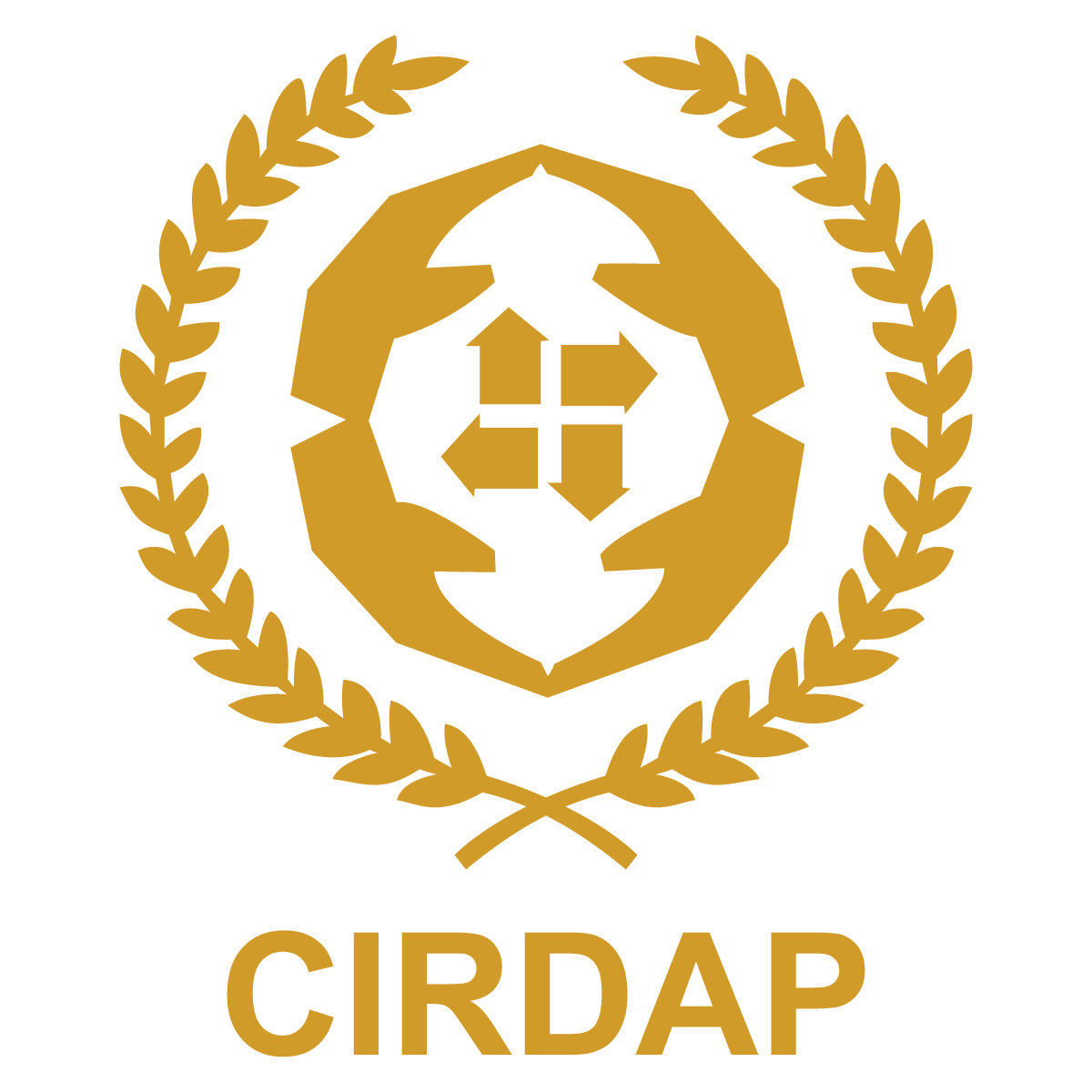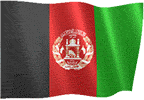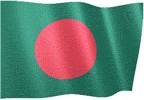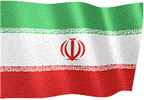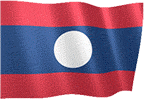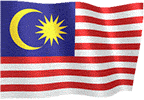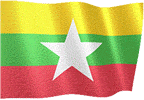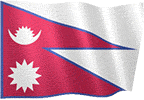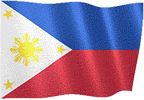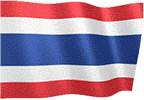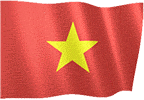Seven Thematic and Cross-cutting Programme
The mandate of CIRDAP is addressed through three thematic work programmes that support sustainable and integrated rural development and Poverty alleviation through policy formulation and development; and inter-governmental cooperation in the region. Four additional cross-cutting programmes facilitate and support implementation of the thematic work programmes:
Thematic Programmes
I. Research on Rural Development and Innovation
II. Integrated Rural Development models
III. Emerging issues on integrated rural development including COVID 19 pandemic, disaster risk reduction and resilience, and climate change impacts, & water resource management.
Cross-cutting Programmes
IV. Partnership cooperation and promotion
V. Training & Education
VI. Information & Communication
VII. Gender in Integrated Rural Development
Implementation: Through member countries, link institutes, INGOs, NGOs, Academics and research organization, CIRDAP will implement and work on these thematic issues. The work plan is implemented the development of collaborative projects and activities by partners in the network, addressing issues of common or regional interest. Projects are essentially implemented by the Secretariat acting as a coordinating body for member countries. CIRDAP also works in close cooperation with FAO, UN specialized agencies, international development partners and other regional and international organizations in implementing the work plan.
I. Research on Rural Development and Innovation
To carry out interdisciplinary and transdisciplinary action research on integrated rural development and related issues in collaboration with CLIs, development partners and projects to obtain policy advice and recommendations for improving livelihoods, economic and environment aspects and for achieving SDGs and related frameworks. The research outcome will provide policy advice and recommendations for policy makers in making better-informed choices. The key research initiatives and activities are given
below:
Key Activities
- Moving toward an integrated national data system that enables the use and reuse of data to create economic and social values, promotes equitable opportunities to benefit from data, and foster citizens’ trust.
- Utilize innovative technologies such as satellite imagery data from public and private sources to monitor food security and forecast malnutrition and to provide mapping of target communities for planning and implementing of rural development and poverty alleviation activities.
- Carry out action research on integrated rural development and related issues to meet regional, national and local priorities and needs.
- Facilitate the development of the plan of action for the national food and nutrition security and other relevant policies and strategies in CMCs.
- Review rural livelihood activities in CMCs to assess their implications for food and nutrition security and other relevant policies.
- Collaborate with other programmes of CIRDAP to carry out research to meet their respective objectives.
- Publish scholarly articles on IRD and related issues in the CIRDAP Journal (APJORD).
II. Integrated Rural Development models
Integrated rural development (IRD) has been one of the major rural development strategies in Asia and the Pacific countries since the last four decades. Through experimentation with rural development projects pioneered by different countries, characterized by pragmatic adaptation to local conditions, several concepts, philosophies and models have been successfully applied for improving livelihoods, reducing poverty and increasing food security of rural people. Some best practice models in CMCs of CIRDAP are Afghanistan – Afghanistan Rural Enterprise Development Project (AREDP), Bangladesh – One House, One Farm, Fiji – The Markets for Change (M4C) project, India- Provision of Urban Amenities to Rural Areas (PURA), Iran – Integrated Programme for Sustainable Water Resources Management in the Urmia Lake Basin, Indonesia – Institutional Strengthening for Improved Village Service Delivery Project, Lao PDR – Village Banking, Malaysia –Mini Rural Transformation Centre (Mini RTC), Myanmar – National Community Driven Development project (NCDDP), Nepal – Cooperative Market development, Pakistan – National Rural Support Programme, Philippines – Sustainable Livelihood Programme, Sri Lanka – The Samurdhi Programme, Thailand – Sufficiency Economy Philosophy (SEP) and Vietnam Mekong Delta Integrated Climate Resilience and Sustainable Livelihood Project. The models of success in these countries can be promoted through number of activities implemented by CIRDAP for the benefits of rural people in developing countries.
Key Activities
- Establishment of CIRDAP Exhibition and Museum on Integrated Rural Development in Asia- Pacific (CEMIRD) to showcase best practices on -integrated rural development (IRD) models from CIRDAP member countries in both physically and digitally.
- Establishment of the International Day for Rural Development (World Rural Development Day) on 6 July and organization of events to call for global attention and participations
- Coordination on awarding of Aziz-Ul Haq Rural Development Medal to individual or organization including successful farmers who have contributions to rural development
- Undertake pilot projects to demonstrate successful models/practices across CMCs
- Organization of a series of workshops and seminar on IRD models in collaboration with CMCs/CLIs.
- Dissemination of information on IRD models in CIRDAP website, Facebook pages, article in various publications for wider public.
- Compilation of the success stories or case studies based on each IRD model.
III. Emerging Issues on Integrated Rural Development
The emerging global issues on integrated rural development Programme including the COVID 19 pandemic, climate change, disaster risk reduction, and water resource management, etc. provides policy guidance on key strategics and policies in CMCs. CIRDAP will focus on the following themes of emerging issues and key activities associated with them. The programme endeavors to bring to public domain the positive aspects of rural agriculture activities as a significant contributor to food security and the livelihoods of rural communities, and actively promotes south-south cooperation.
Key Activities
- Development of projects and policy guidance on emerging issues of regional interest.
- Contribute to the global dialogue on climate change mitigation and adaptation in agriculture and aquaculture farming practices.
- Providing a regional platform for members to develop common policies and strategies to address emerging global issues.
- Facilitating the development of an environmental monitoring system to strengthen agricultural activities resilience and to improve early warning systems in the CMCs.
- Evaluating the vulnerabilities of agriculture systems to climate change and related natural disasters.
- Strengthening adaptive capacities of small-scale resource-poor farmers to the impacts of climate change and related natural disasters.
- Adaptive learning and management in community-based agriculture projects.
- Playing a catalytic role in south-south cooperation in agriculture development.
- Communication of success stories in integrated rural development.
IV. Partnership Cooperation and Promotion
Strengthen the means of implementation and revitalize the partnership is one of the global goals for sustainable development (SDG 17). CIRDAP will be responsible for enhancing of partnership cooperation and promotion in integrated rural development (IRD). During the past four decades, CIRDAP has collaborated and cooperated with international, regional and national organizations and civil society in areas of IRD and PA. CIRDAP has 12 active agreements for multi-level cooperation in 2020.
Key activities
- From 2020-2030, CIRDAP will enhance, expand and explore partnership cooperation for technical cooperation, research, innovation, knowledge and information sharing, trade and sustainable development, and capacity building, etc.
- CIRDAP will expand membership in Asia and the Pacific region.
- CIRDAP will establish collaboration with regional and international organizations and Institutes. Such as Asia Cooperation Dialogue (ACD), Asia-Pacific Association of Agricultural Research Institutions (APAARI), The Bay of Bengal Initiative for Multi-Sectoral Technical and Economic Cooperation (BIMSTEC),
The Global Forum on Human Settlements (GFHS), International Institute for Trade and Development (ITD), International Ocean Institute (IOI), Network of Aquaculture Centres in Asia and the Pacific (NACA), The Renewable Energy and Energy Efficiency Partnership (REEEP), The South Asian Association for Regional Cooperation (SAARC), The Southeast Asian Fisheries Development Center (SEAFDEC), The International Emergency Society (TIEMS), The World Business Council for Sustainable Development (WBCSD), etc. - CIRDAP will strengthen cooperation with UN FAO, namely; FAO Bangladesh, FAO HQ and FAO Regional Office for Asia and the Pacific in area of food security, food safety, and climate change as well as participation in FAO events such as Global Conference on Aquaculture 2020 in September 2021 in Shanghai, PR China and Asia-Pacific Regional Conference in March 2022 in Dhaka, Bangladesh.
- CIRDAP will establish cooperation with UN agencies and its specialized agencies. Namely- United Nations Economic and Social Commission for Asia and the Pacific (UNESCAP), United Nations Conference on Trade and Development (UNCTAD), United Nations Department of Economic and Social Affairs (UNDESA), United Nations Development Programme (UNDP), United Nations Disaster Risk Reduction (UNDRR), United Nations Environment Programme (UNEP), United Nations Framework Conference on Climate Change (UNFCCC) in areas of trade, Sustainable Development, disaster risk reduction, environment and climate change, respectively.
- The South-South Cooperation will be explored for knowledge sharing and technology transfer.
V. Training & Education
Training & Education Programme promotes capacity building and development among CIRDAP member countries (CMC) through the research, exchange and sharing of knowledge and skills amongst members.
Regional training programme on IRD, Governance, Trade and Sustainable Development for Asia and the Pacific in collaboration with BARD and partners will be carried out as a flagship programme of CIRDAP scheduled for 2022 onwards.
CIRDAP will pursue and collaborate with the link institutes to organize three to four regular training activities on various topics of regional priority.
Key activities
- Identifying training needs for IRD and relevant issues in CMCs
- Identifying and organizing relevant expertise and capacities to meet the training needs
- Developing training modules and materials
- Facilitating routine education and training activities of CIRDAP
- Facilitating and coordinating exchange programmes among members and with other regions
VI. Information & Communication
Information & communication and its’ associated technologies can help accelerate progress towards every single one of the 17 United Nations Sustainable Development Goals (SDGs). SDG 9— (specifically SDG Target 9.c) and Goal 16 – are directly related in this aspect. The Information & Communications Programme extends the outputs of the CIRDAP work programmes to the integrated rural development (IRD) in rural community at large and provides a platform for sharing information and experience. All news and publications are made available for free download via the CIRDAP website and CIRDAP E-facilities – IRD Knowledge Portal (InfoRD), IRD e-Learning Portal, Cloud Meeting Platform and state of the art E-Library that houses hundreds of books and publications published by CIRDAP and others. The expert
database will be established and utilized as the CIRDAP resource intelligence for Asia and the Pacific Region.
Key activities
- Communicating the outputs of the CIRDAP thematic work programmes in CMC’s;
- Supporting expertise-oriented networks and sharing of expertise between individuals, institutions and member states;
- Strengthening cooperation and coordination among member government agencies, external partners and the private sector;
- Production and energizing the series of publications, including Annual report, APJORD, Rural Development Report (RDR), Newsletter, Inspiring and success story publications, webinar publication, research paper, CIRDAP Development Digest (CDD) etc.
- Producing audio and video podcasts of technical presentations given at regional meetings
- Building a regional information and applications through CIRDAP Centre on Geo-informatics Applications in Rural Development (CCGARD) on climate change, disaster risk reduction, mitigation and adaption.
- Establishing Geographic Information System (GIS)/Management Information System (MIS) and decision-support platform for IRD for Asia and the Pacific in CCGARD.
- Building library community for sharing and disseminating the information and findings of Asia and the pacific region.
- Disseminating information, publications and other activities through digital mode and social Medias.
- Establishment and utilization of CIRDAP Expert Database as its resource intelligence in Asia and the Pacific.
VII. Gender in Integrated Rural Development
Across the developing world, women make up nearly 50 percent of agricultural employment. The Sustainable Development Goals (1, 2, 5 & 8) – CIRDAP works on gender equality recognizes that empowering women also empowers and benefits men, and that the key to improve rural development, agriculture, food security and nutrition lies in the engagement of women, men, boys and girls. CIRDAP works on gender equality (SDG5) and empowerment of rural women and girls is aligned with the heart of the 2030 Agenda: leaving no one behind.
CIRDAP recognizes “the international day of Rural Women” on October, 15 each year as one of its major events to celebrate their contributions in different sectors in rural areas such as agriculture, food production and security and others. CIRDAP is planning to collaborate with its link institutes, member countries and partners to implement the following activities to promote gender in IRD:
Key Activities
- Women, Youth and Rural development Programme on empowerment, education, health and other social, cultural and political issues.
- Organizing workshop/seminar on gender and disability in rural development issues and on specific days for example: International day of Rural Women’s Day, International day for the Persons with Disabilities.
- Capacity building on gender integration and mainstreaming (training on Gender issues and empowerment).
- Publishing the In country gender assessment reports for policy, action and research.
- Publication of case studies and success stories on Gender in rural development issues in CMCs.
- Develop policy or future strategies for women’s empowerment in Asia-Pacific region.
- Networking with women organizations in Asia-Pacific regions for future collaboration.
